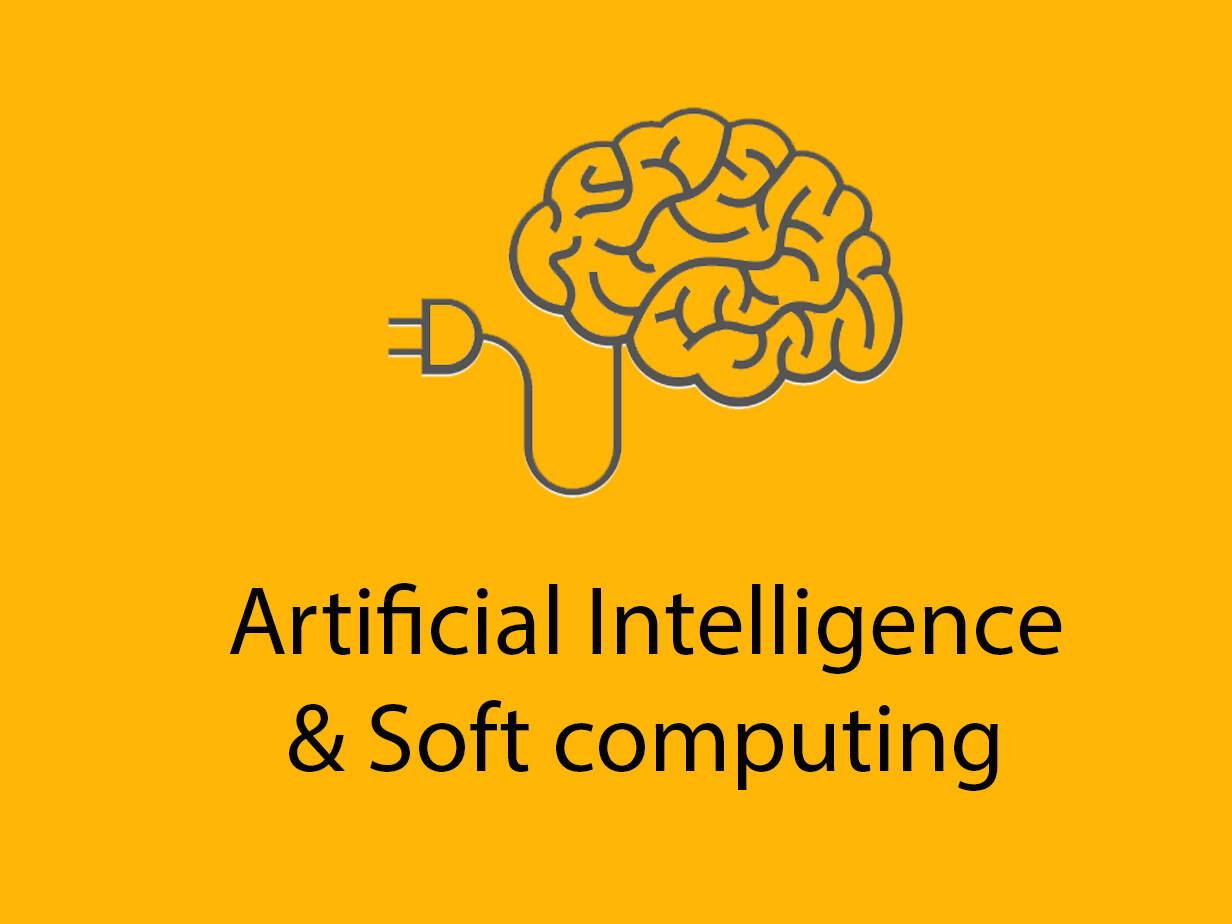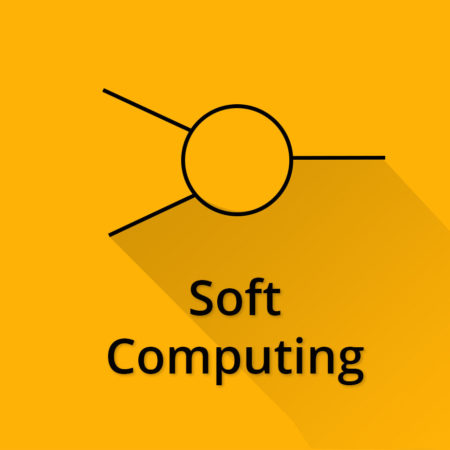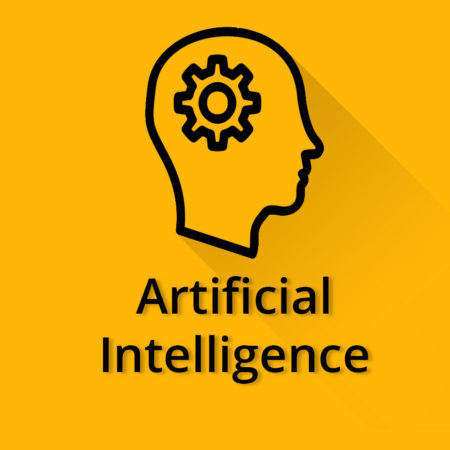AISC (Artificial Intelligence and Soft Computing)

-
About The Course
-
Description
This course enables learning on different graph traversal techniques (BFS & DFS)
along with enhanced search algorithms like A* algorithm. Genetic algorithms are discussed along with Min-Max algorithms.
Expert systems and ANN are also discussed in detail along with Fuzzy logic in SC.
Along with a pdf with important notes and explanations
Modules Covered:
Introduction to AI / SC
Problem solving algorithms
Knowledge, Reasoning and Planning.
Fuzzy Logic.
Artificial Neural Network.
Expert System. -
How to Pass AISC
-
Introduction to Artificial Intelligence(AI) and Soft Computing
-
Problem Solving
- BFS ( Breadth First Search ) Algorithm with solved Example
- DFS ( Depth First Search ) Algorithm with solved Example
- IDFS ( Iterative Depth First Search ) Algorithm with solved Example
- GBFS Solved Example
- A Star solved Example
- Hill Climbing
- Min Max Solved Example
- Alpha-Beta Pruning Solved Example
- Genetic Algorithm
- Genetic Algorithm Max one Problem Solved Example
-
Fuzzy Logic
-
Knowledge, Reasoning and Planning
-
Artificial Neural Network
-
Expert System
-
Notes
-
Extra Notes
- Introduction to Artificial Intelligence and Soft Computing (Module 1 Notes)
- Artificial Intelligence Notes #1
- Artificial Intelligence Notes #2
- Soft Computing Module 4
- Soft Computing Module 5
- Soft Computing Handmade Notes
- Artificial Intelligence and Soft Computing Complete Notes ( Toppers Solution )
- Mobile Communication and Computing Notes ( Toppers Solution )
- Digital Signal Processing Handmade Notes
AISC (Artificial Intelligence and soft Computing)
Tutor: Sumer and Brian
What you’ll Learn:
-
Get a good grasp of Artificial Intelligence
-
Understand how AI / Soft Computing algorithms work.
-
Detailed concepts on AI/SC
-
Logics and different representation of data like Fuzzy logic, Tree representation.
Description:
Artificial Intelligence & Soft Computing is semester 7 subject of final year of computer engineering in Mumbai University. Prerequisite for studying this subject are Basic Mathematics, Algorithms. Course Objectives of the subject Artificial Intelligence & Soft Computing is to conceptualize the basic ideas and techniques of AI and SC. To distinguish various search techniques and to make student understand knowledge representation and planning. To become familiar with basics of Neural Networks and Fuzzy Logic. To familiarize with Hybrid systems and to build expert system.
Course Outcomes of the subject Artificial Intelligence & Soft Computing Students should be able to Identify the various characteristics of Artificial Intelligence and Soft Computing techniques. Choose an appropriate problem solving method for an agent to find a sequence of actions to reach the goal state. Analyse the strength and weakness of AI approaches to knowledge representation, reasoning and planning. Construct supervised and unsupervised ANN for real world applications. Design fuzzy controller system. Apply Hybrid approach for expert system design.
Artificial intelligence is intelligence demonstrated by machines, unlike the natural intelligence displayed by humans and animals, which involves consciousness and emotionality. The distinction between the former and the latter categories is often revealed by the acronym chosen. ‘Strong’ AI is usually labelled as Artificial General Intelligence while attempts to emulate ‘natural’ intelligence have been called Artificial Biological Intelligence. Leading AI textbooks define the field as the study of “intelligent agents”: any device that perceives its environment and takes actions that maximize its chance of successfully achieving its goals. Colloquially, the term “artificial intelligence” is often used to describe machines that mimic “cognitive” functions that humans associate with the human mind, such as “learning” and “problem solving”.
Module Introduction to Artificial Intelligence (AI) and Soft Computing consists of the following subtopics Introduction and Definition of Artificial Intelligence. Intelligent Agents: Agents and Environments, Rationality, Nature of Environment, Structure of Agent, types of Agent ,Soft Computing: Introduction of soft computing, soft computing vs. hard computing, various types of soft computing techniques. Module Problem Solving consists of the following subtopics Problem Solving Agent, Formulating Problems, Example Problems Uninformed Search Methods: Depth Limited Search, Depth First Iterative Deepening (DFID), Informed Search Method: A* Search, Optimization Problems: Hill climbing Search, Simulated annealing, Genetic algorithm. Module Knowledge, Reasoning and Planning consists of the following subtopics Knowledge based agents. First order logic: syntax and Semantic, Knowledge Engineering in FOL Inference in FOL : Unification, Forward Chaining, Backward Chaining and Resolution. Planning Agent, Types of Planning: Partial Order, Hierarchical Order, Conditional Order. Module Fuzzy Logic consists of the following subtopics Introduction to Fuzzy Set, Fuzzy set theory, Fuzzy set versus crisp set, Crisp relation & fuzzy relations, membership functions, Fuzzy Logic: Fuzzy Logic basics, Fuzzy Rules and Fuzzy Reasoning. Fuzzy inference systems: Fuzzification of input variables, defuzzification and fuzzy controllers. Module Artificial Neural Network consists of the following subtopics Introduction Fundamental concept– Basic Models of Artificial Neural Networks Important Terminologies of ANNs McCulloch-Pitts Neuron. Neural Network Architecture: Perceptron, Single layer Feed Forward ANN, Multilayer Feed Forward ANN, Activation functions, Supervised Learning: Delta learning rule, Back Propagation algorithm. Un-Supervised Learning algorithm: Self Organizing Maps. Module Expert System consists of the following subtopics Hybrid Approach Fuzzy Neural Systems, Expert system: Introduction, Characteristics, Architecture, and Stages in the development of expert system Suggested Reference Books for the subject Artificial Intelligence & Soft Computing by Mumbai University is as follows Stuart J. Russell and Peter Norvig, “Artificial Intelligence a Modern Approach Second Edition” Pearson Education. Samir Roy and Chakraborty,Introduction to soft computing, Pearson Edition. S.N.Sivanandam, S.N.Deepa “Principles of Soft Computing” Second Edition, Wiley Publication. S.Rajasekaran and G.A.VijayalakshmiPai “Neural Networks, Fuzzy Logic and Genetic Algorithms” PHI Learning. N.P.Padhy, Artificial Intelligence and Intelligent Systems, Oxford University Press.
Suggested Reference Books for the subject Artificial Intelligence & Soft Computing by Mumbai University is as follows Elaine Rich and Kevin Knight Artificial Intelligence Third Edition, Tata McGraw-Hill Education Pvt. Ltd., 2008. Satish Kumar “Neural Networks A Classroom Approach” Tata McGrawHill. Zimmermann H.S “Fuzzy Set Theory and its Applications”Kluwer Academic Publishers. Hagan, Demuth, Beale,”Neural Network Design” CENGAGE Learning, India Edition. J.-S.R.Jang “Neuro-Fuzzy and Soft Computing” PHI 2003. JacekM.Zurada “Introduction to Artificial Neural Sytems” Jaico Publishing House.
Along with a pdf with important notes and explanations
Join in to learn Artificial Intelligence & Soft Computing fundamentals, equally important from the academic as well as real-world knowledge.
Modules Covered:
- Introduction to AI / SC
- Problem solving algorithms
- Knowledge, Reasoning and Planning.
- Fuzzy Logic.
- Artificial Neural Network.
- Expert System.
Feel forward to have a look at course description and demo videos and we look forward to see you learning with us.
Prepare For Your Placements: https://lastmomenttuitions.com/courses/placement-preparation/
![]()
/ Youtube Channel: https://www.youtube.com/channel/UCGFNZxMqKLsqWERX_N2f08Q
Follow For Latest Updates, Study Tips & More Content!
Course Features
- Lectures 55
- Quizzes 0
- Duration 20 hours
- Skill level All levels
- Language Hindi
- Students 95
- Certificate No
- Assessments Yes




